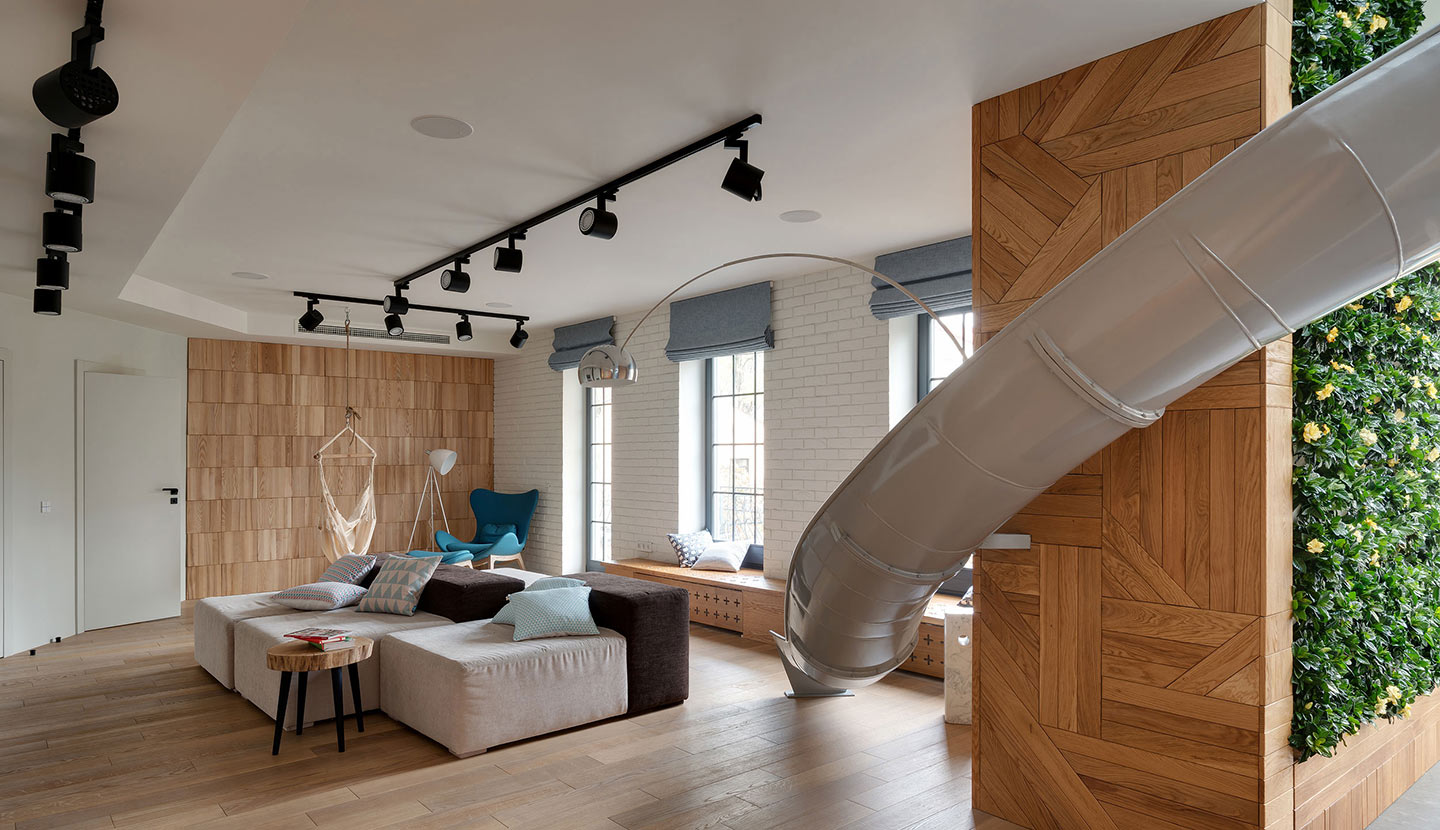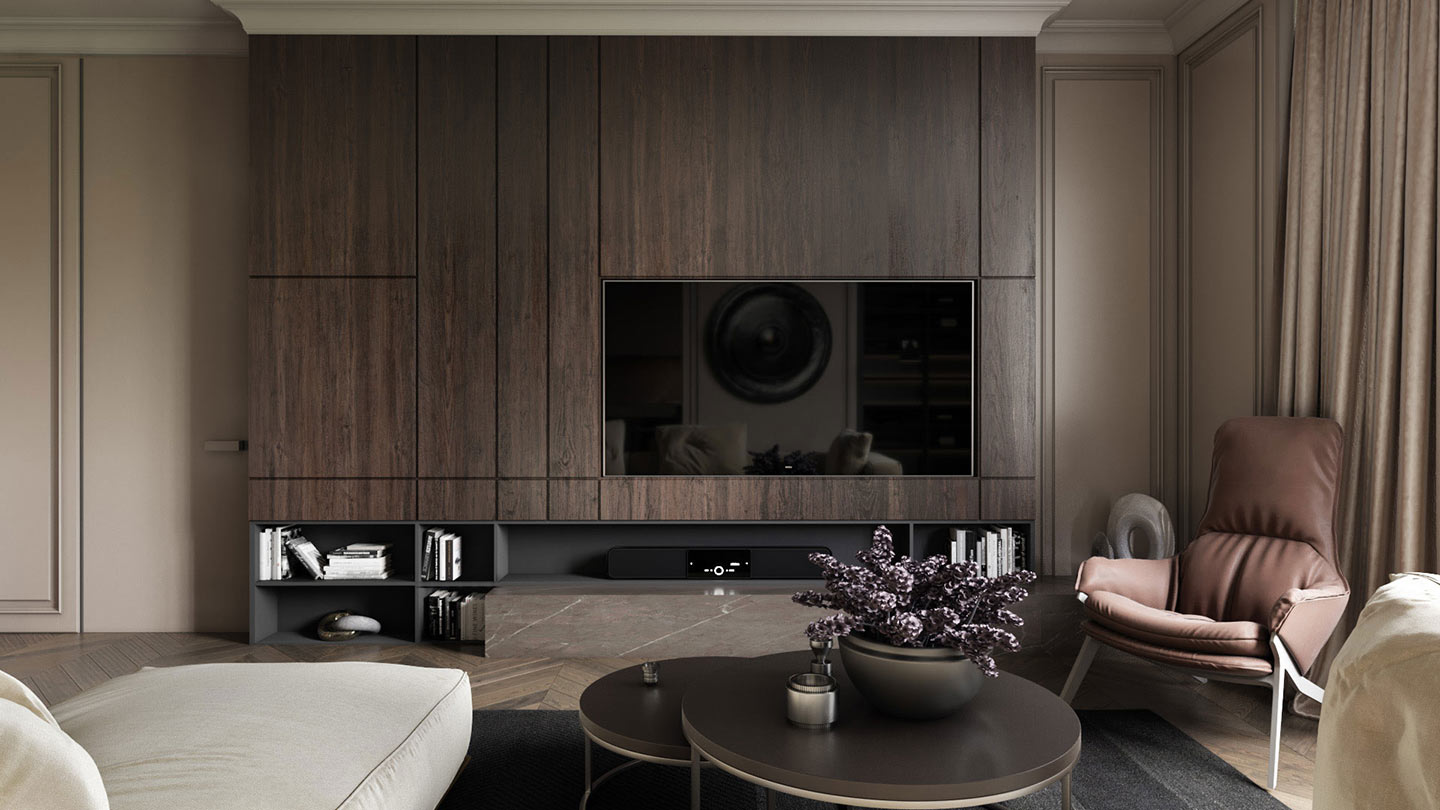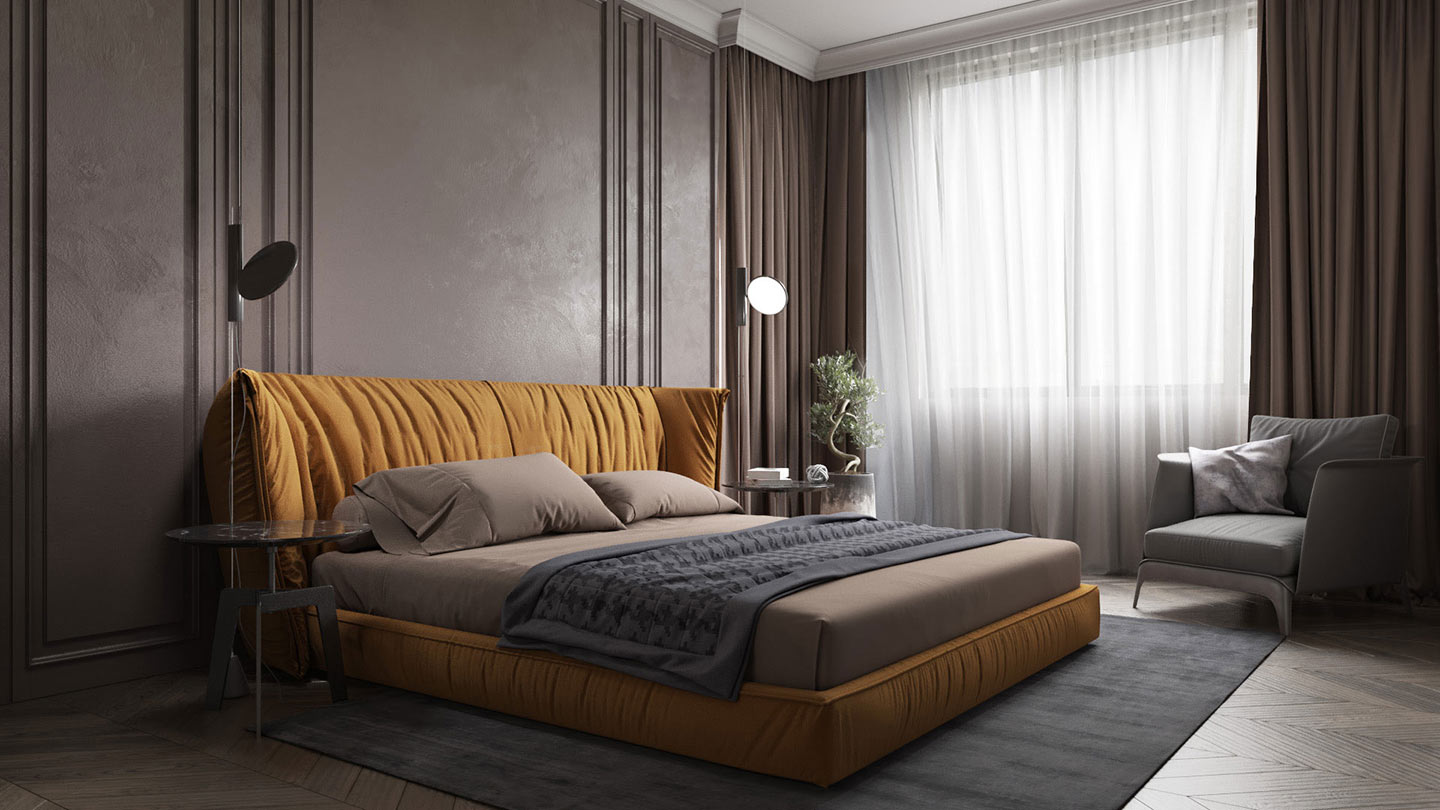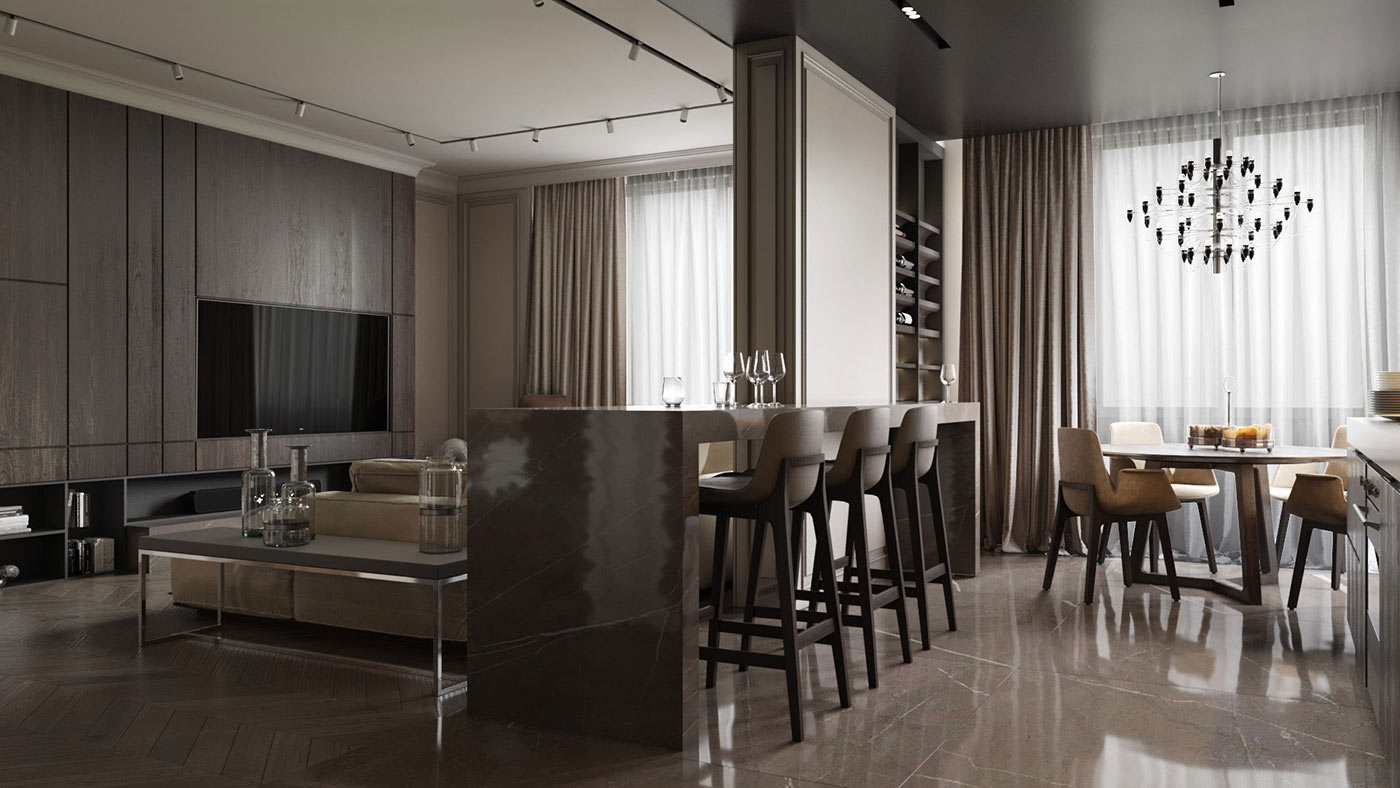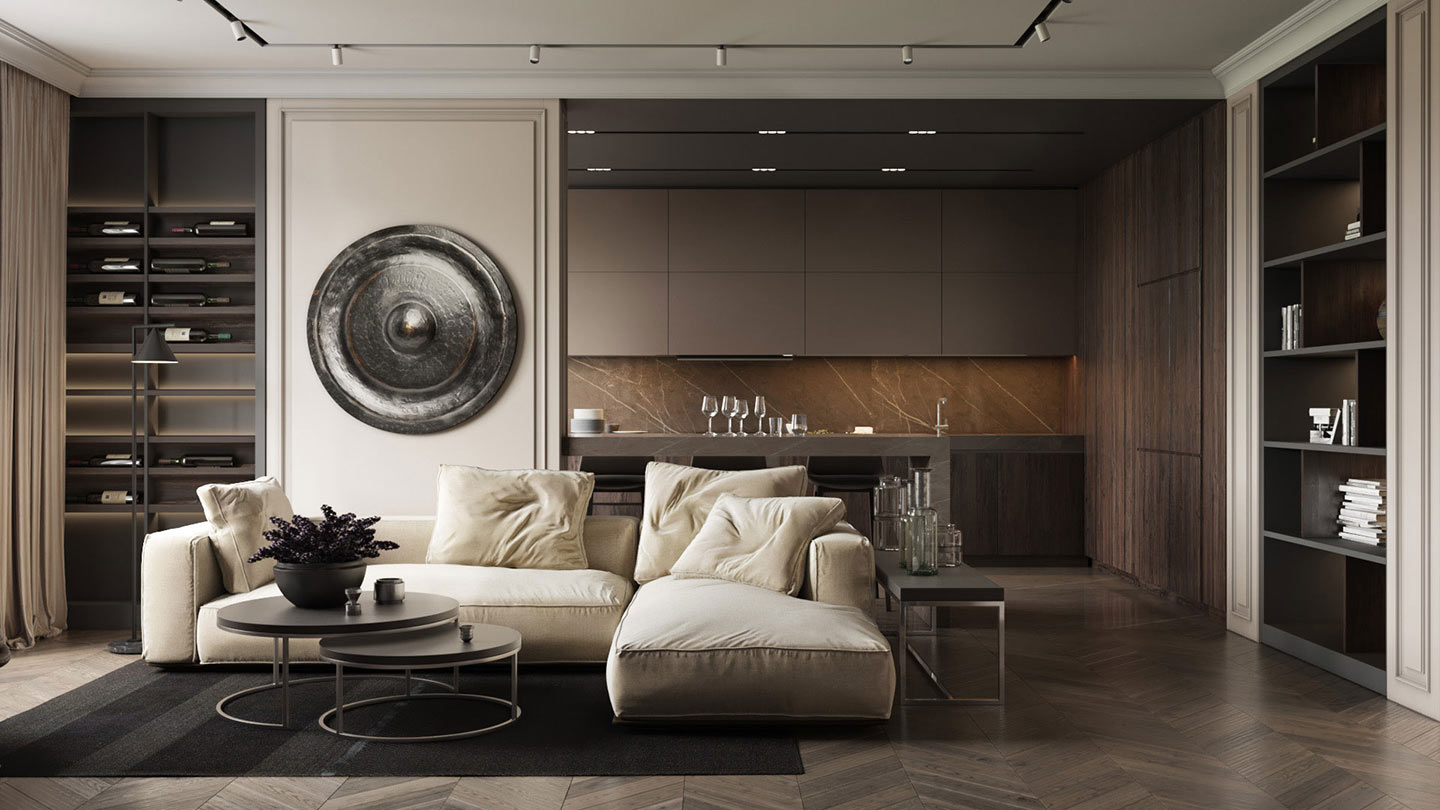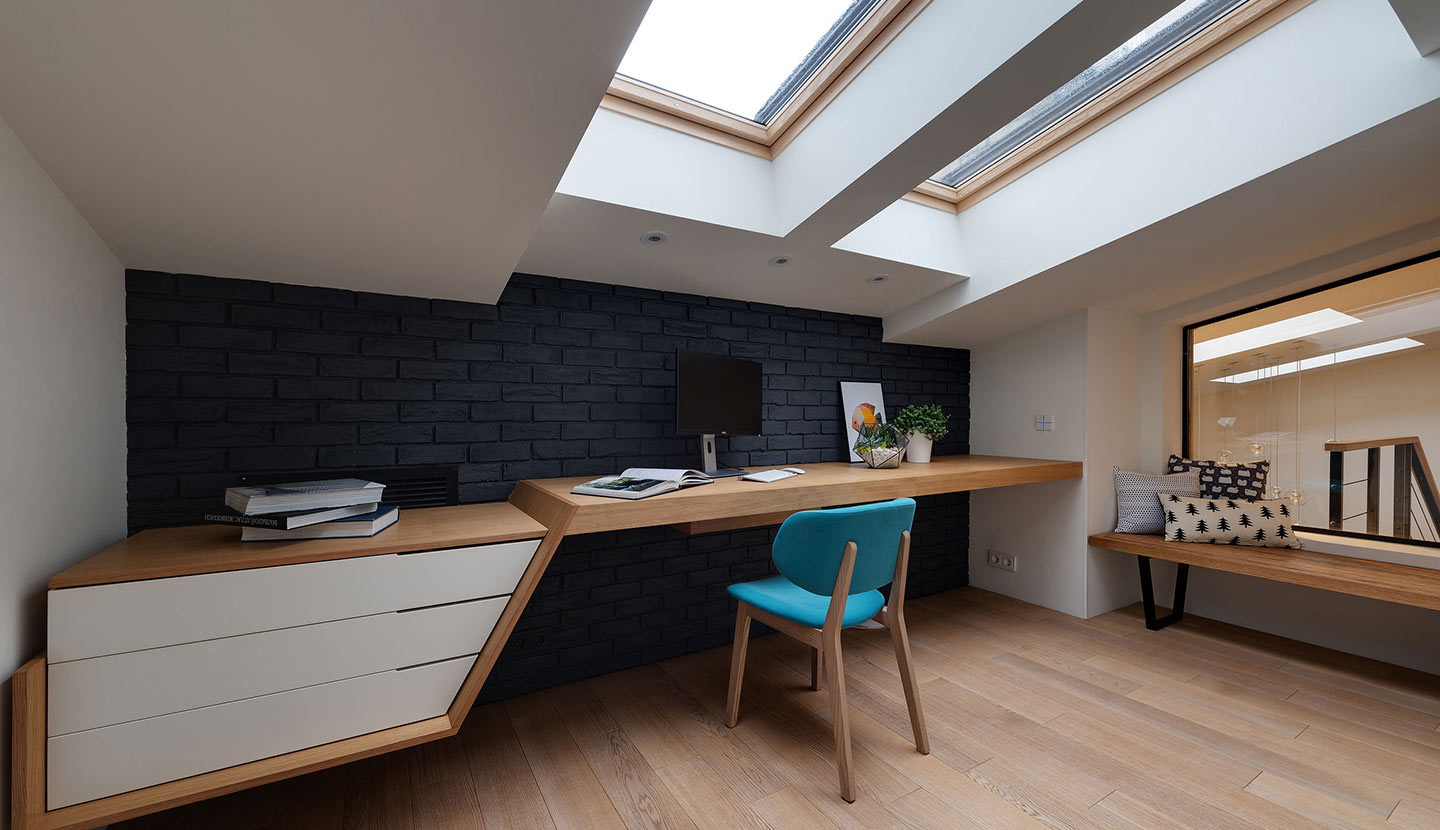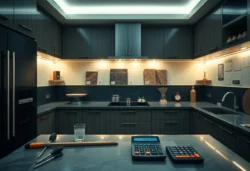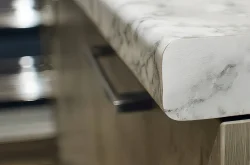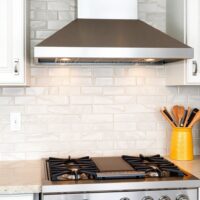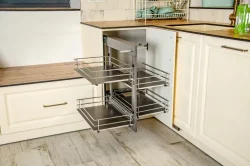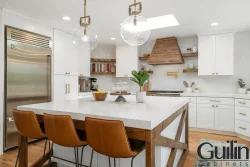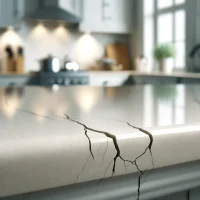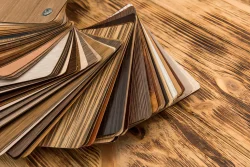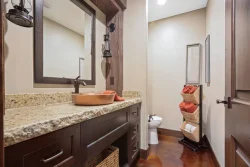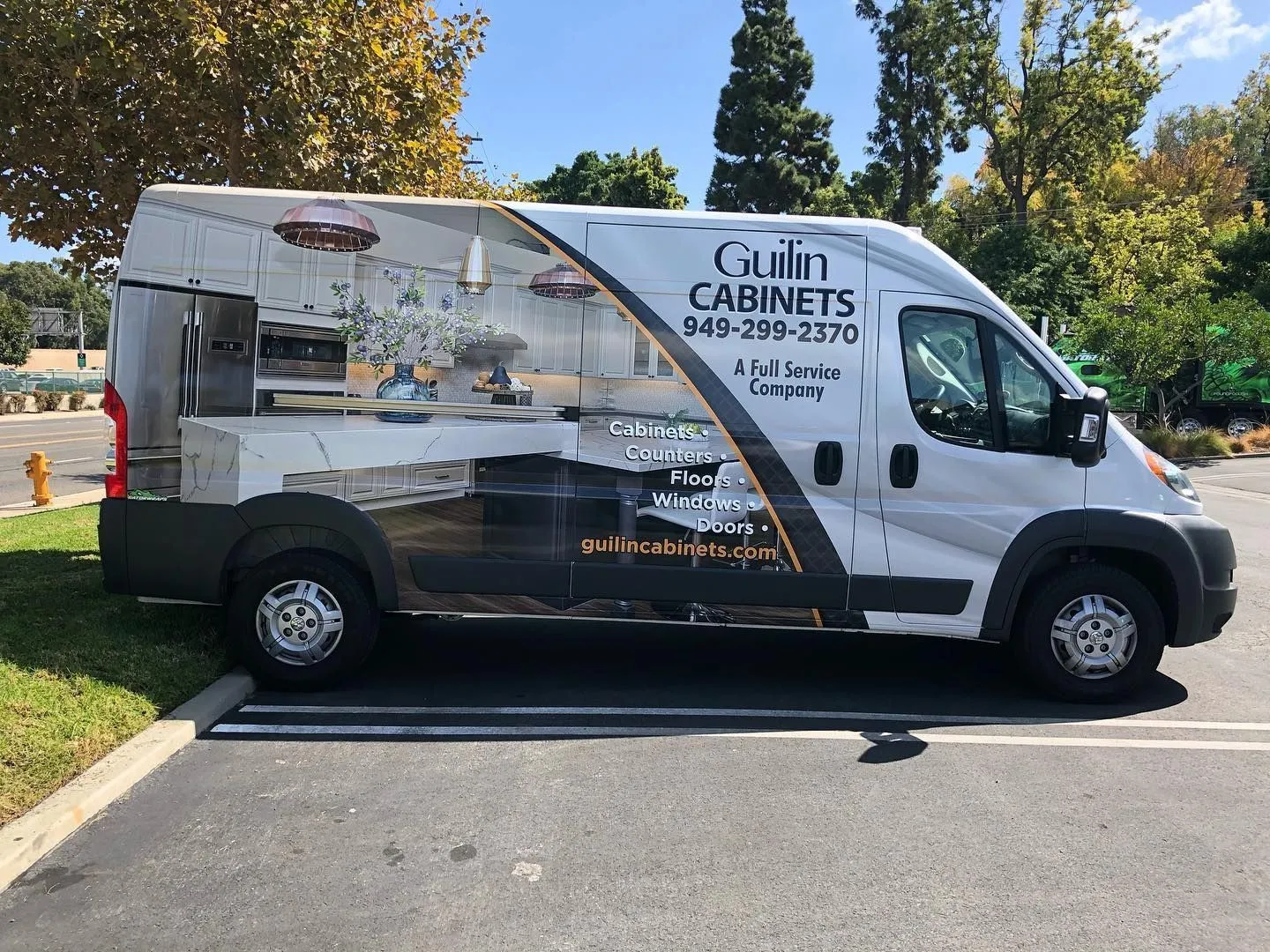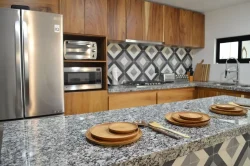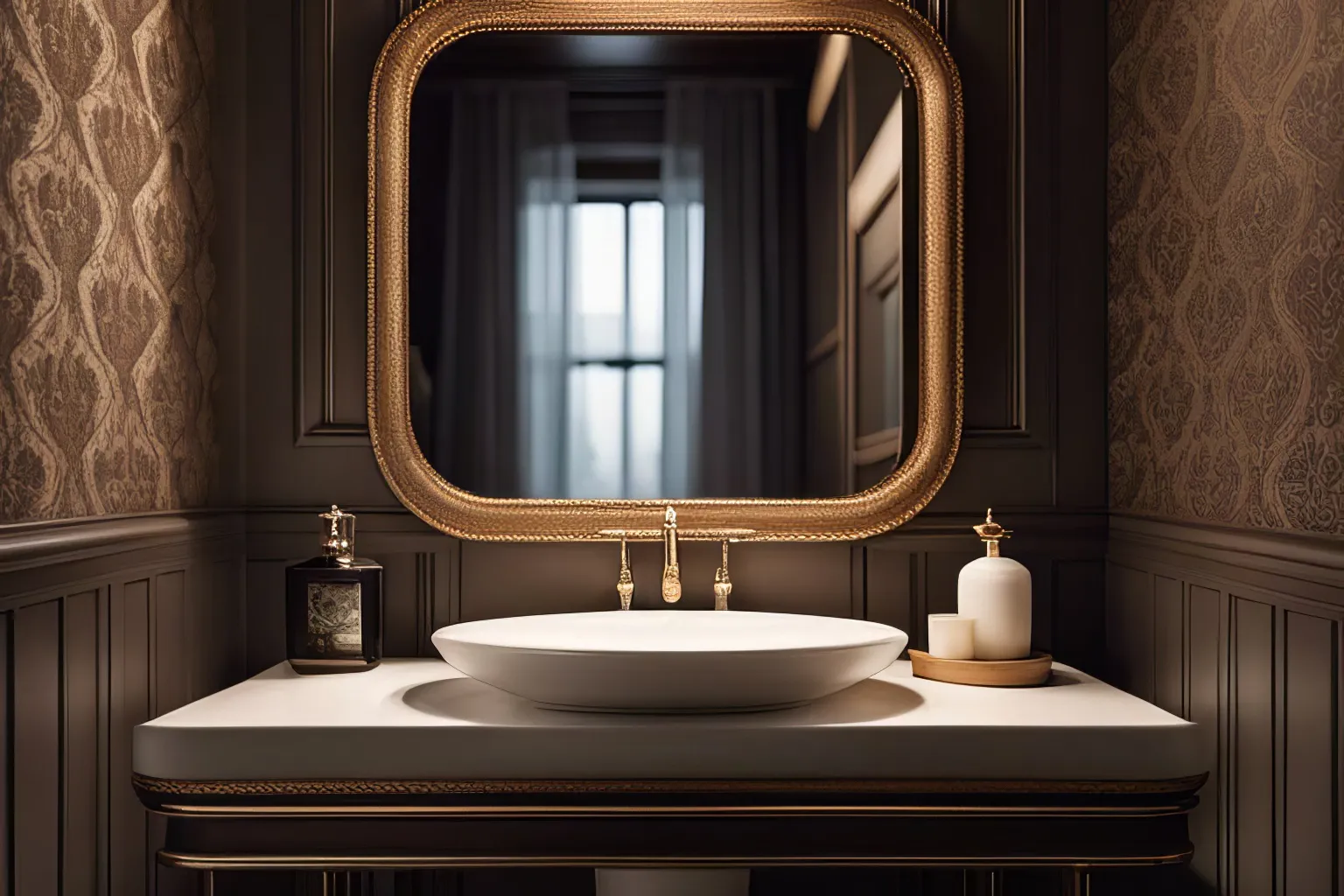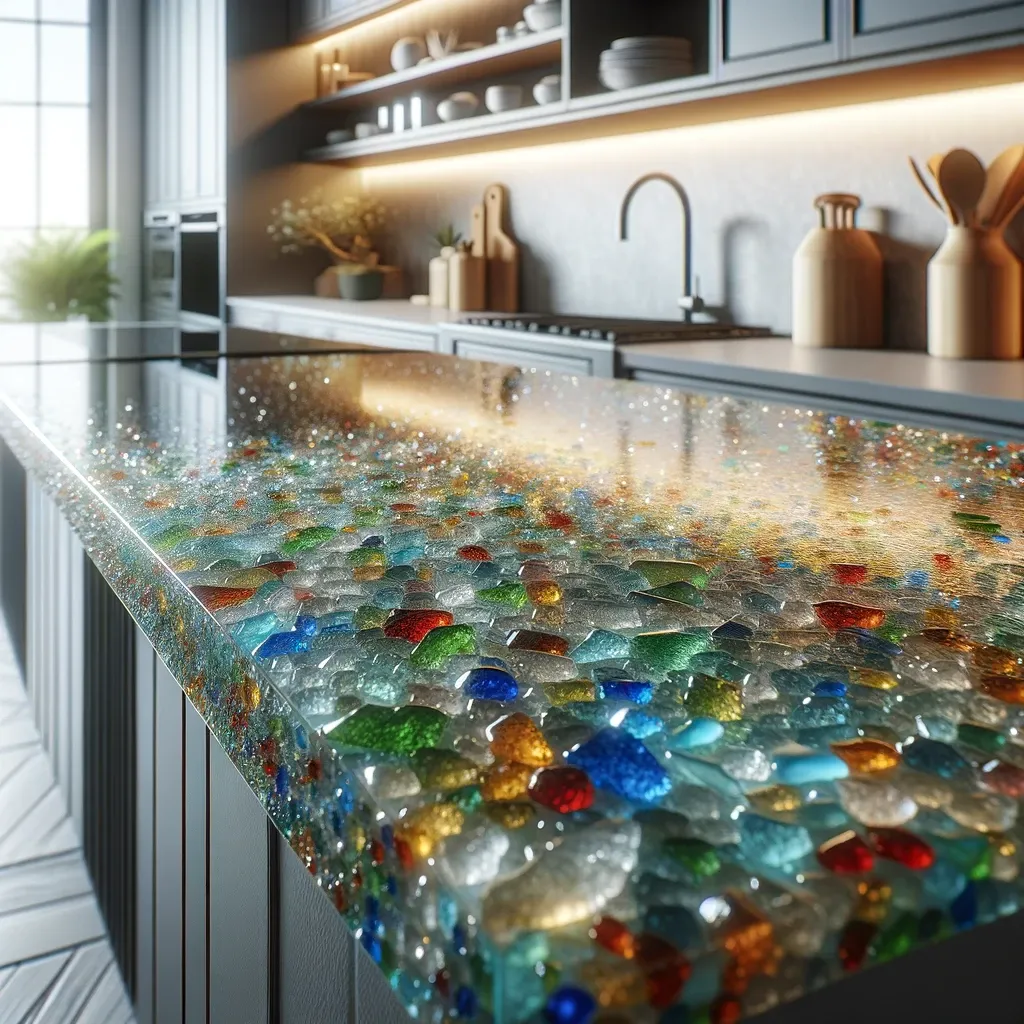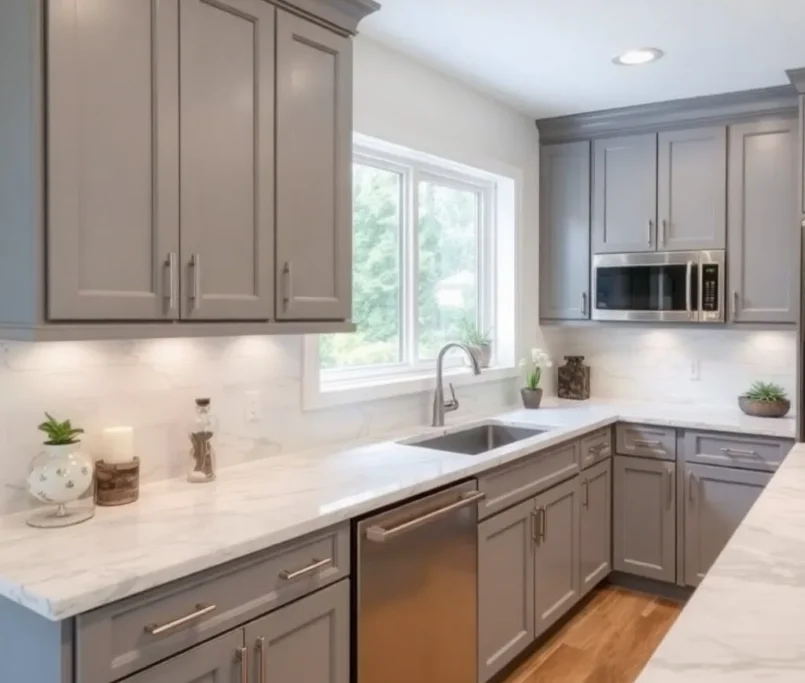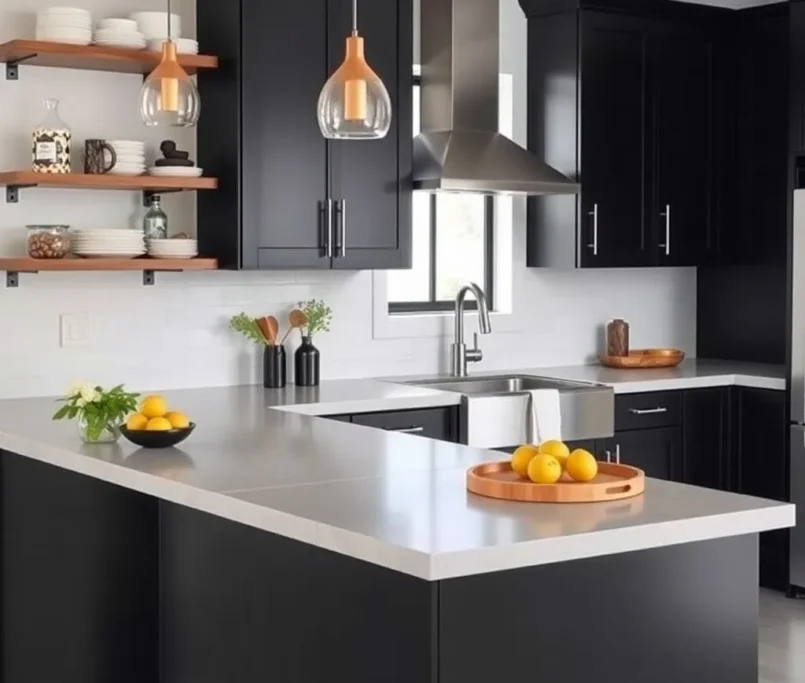Wood countertops have risen in popularity as more and more people opt to incorporate natural components into their home design. Wooden surfaces have many uses and benefits beyond just making a kitchen or bathroom feel more inviting. One must be well-versed in the many varieties of wood and their respective advantages and disadvantages before deciding to install wood countertops in their homes.
=> Related Article: 7 Wood Options for Solid Kitchen Cabinets
Wood Countertops Through the Ages
Early civilizations
The use of wood in kitchen design dates back centuries, with early civilizations utilizing this natural material for countertops and storage surfaces. An important component of traditional kitchen design, wood was valued for its durability, versatility, and warmth. In medieval times, wood countertops were often made from large, solid slabs of hardwood such as oak or maple, providing a sturdy and reliable work surface for food preparation and cooking. Different types of wood offer different aesthetics, durability, and maintenance needs. Common choices include maple, cherry, oak, walnut, and bamboo. Each has its own unique grain patterns and colors.
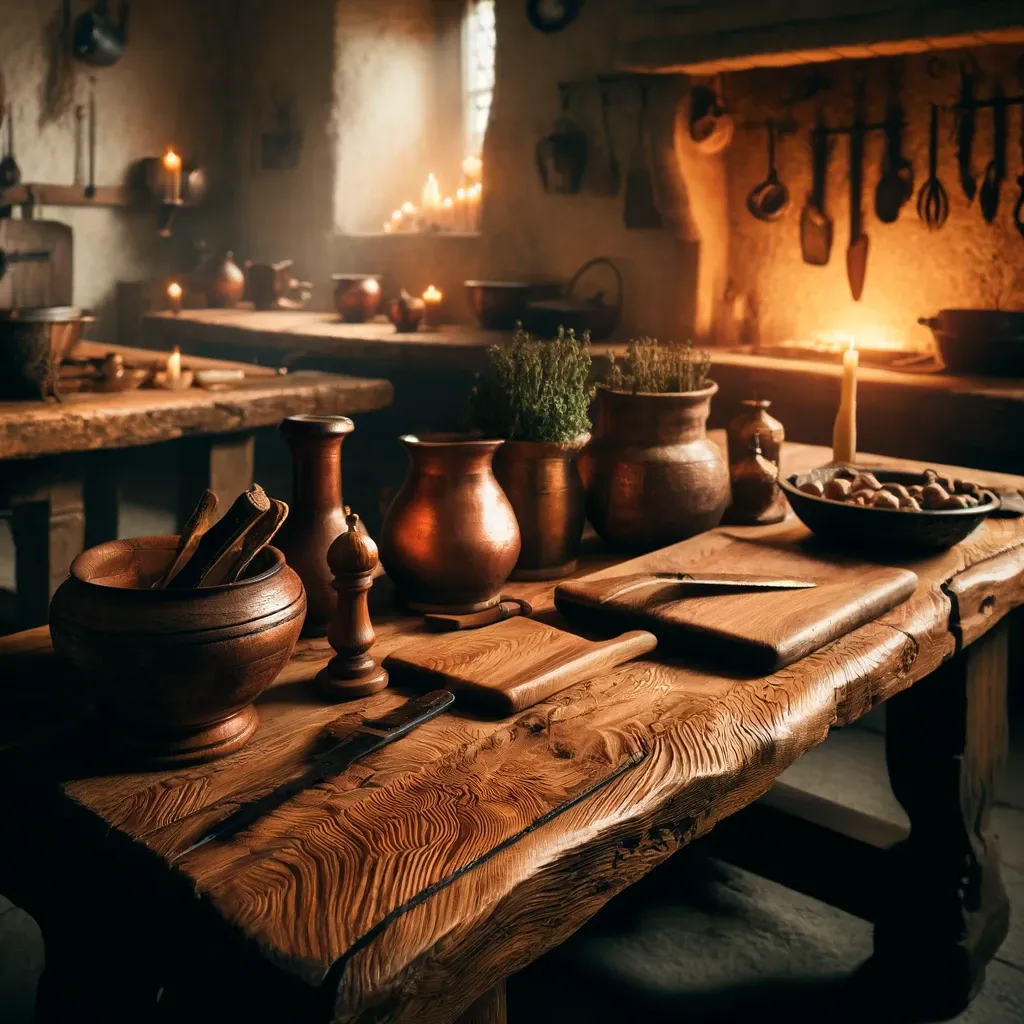
19th and early 20th centuries
As time went on and kitchen styles changed, wood counters remained a popular choice for both country and modern kitchens. Commercial kitchens and butcher shops began to use butcher block countertops in the 19th and early 20th centuries. These counters were highly regarded for their durability and ability to withstand knife scars. Wood countertops have been around for a long time because of its classic good looks and practicality in kitchen design.
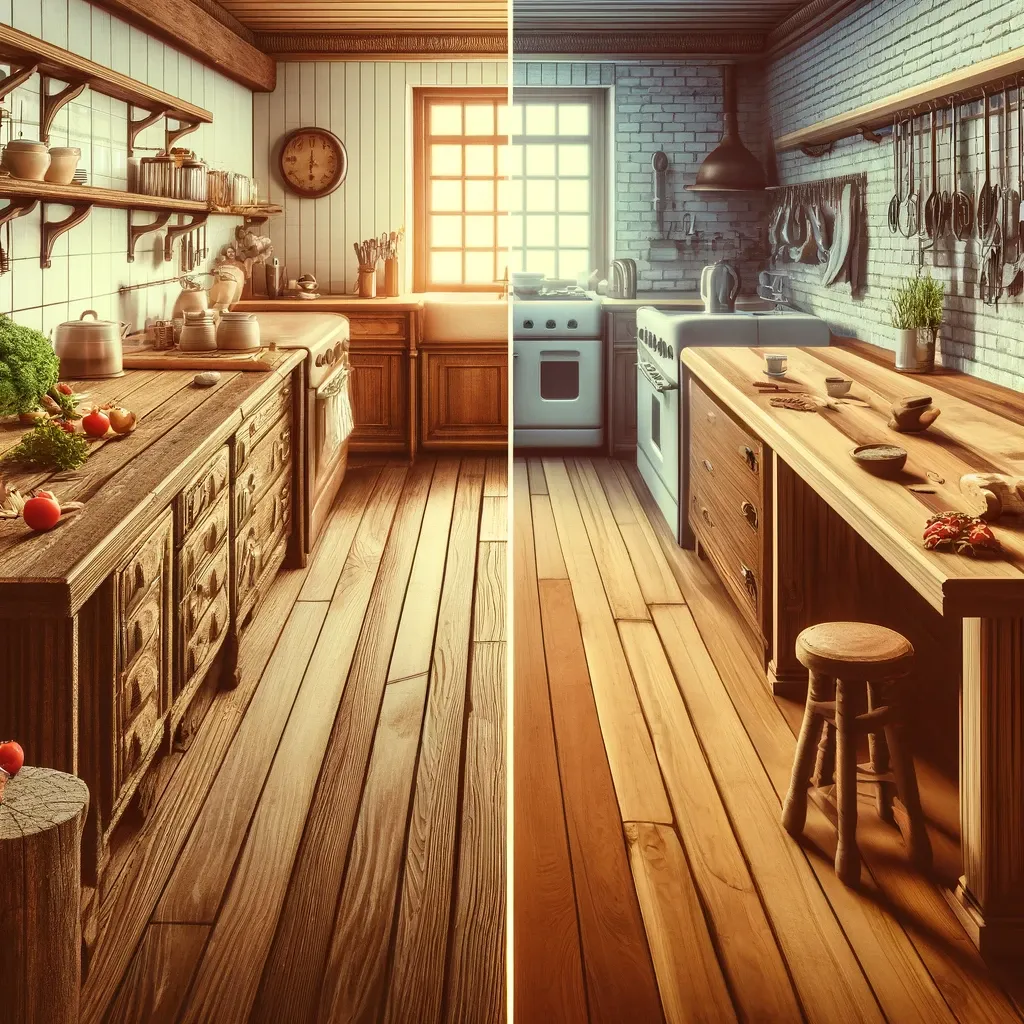
Nowadays, modern kitchens
Wood countertops are a hot commodity again in today’s modern kitchens, thanks to their versatility and ability to complement a wide range of design styles, from ultra-modern minimalism to rustic charm. Kitchen countertops made of renewable and environmentally sustainable wood are a popular choice among eco-conscious homeowners. Countertops made of wood, whether they are reclaimed for a more rustic feel or polished for a more contemporary style, are a great way to personalize your kitchen.
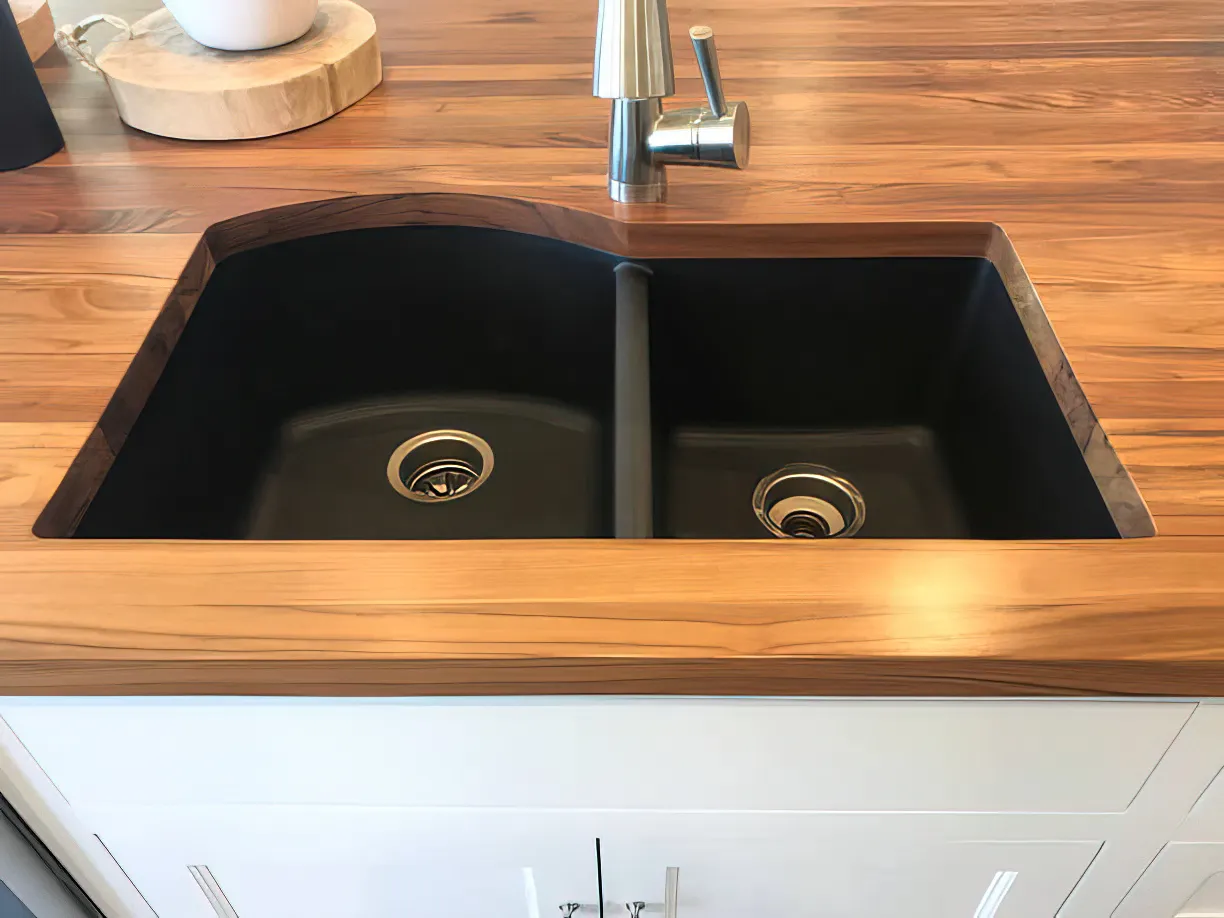
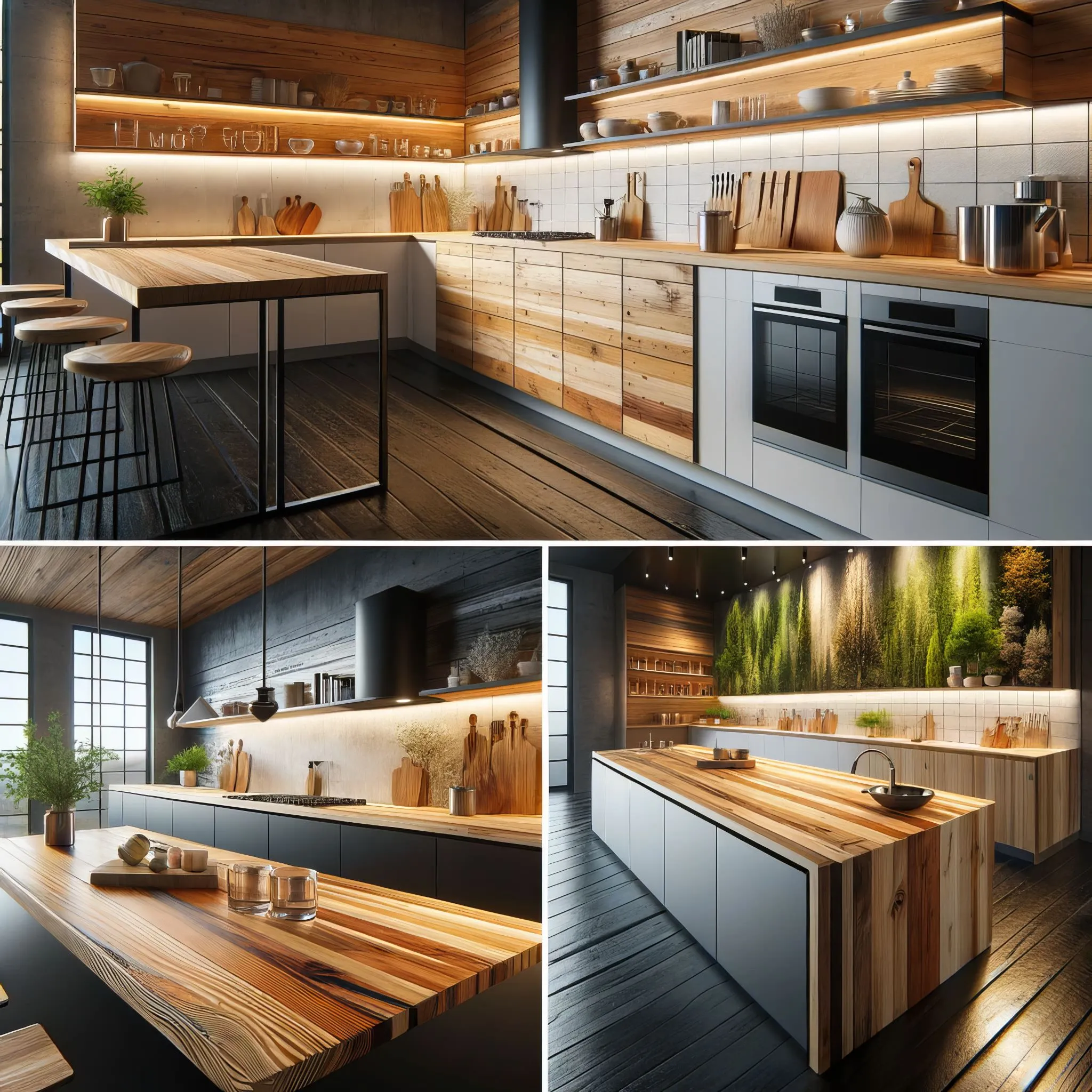
Pros of Wood Countertops
Beautiful Appearance
Your kitchen deserves a touch of elegance, and wood countertops deliver just that. Little compares to the natural beauty and warmth that wood brings to a space. The rich grains and unique patterns of different wood species create a timeless and inviting atmosphere in any kitchen or bathroom.
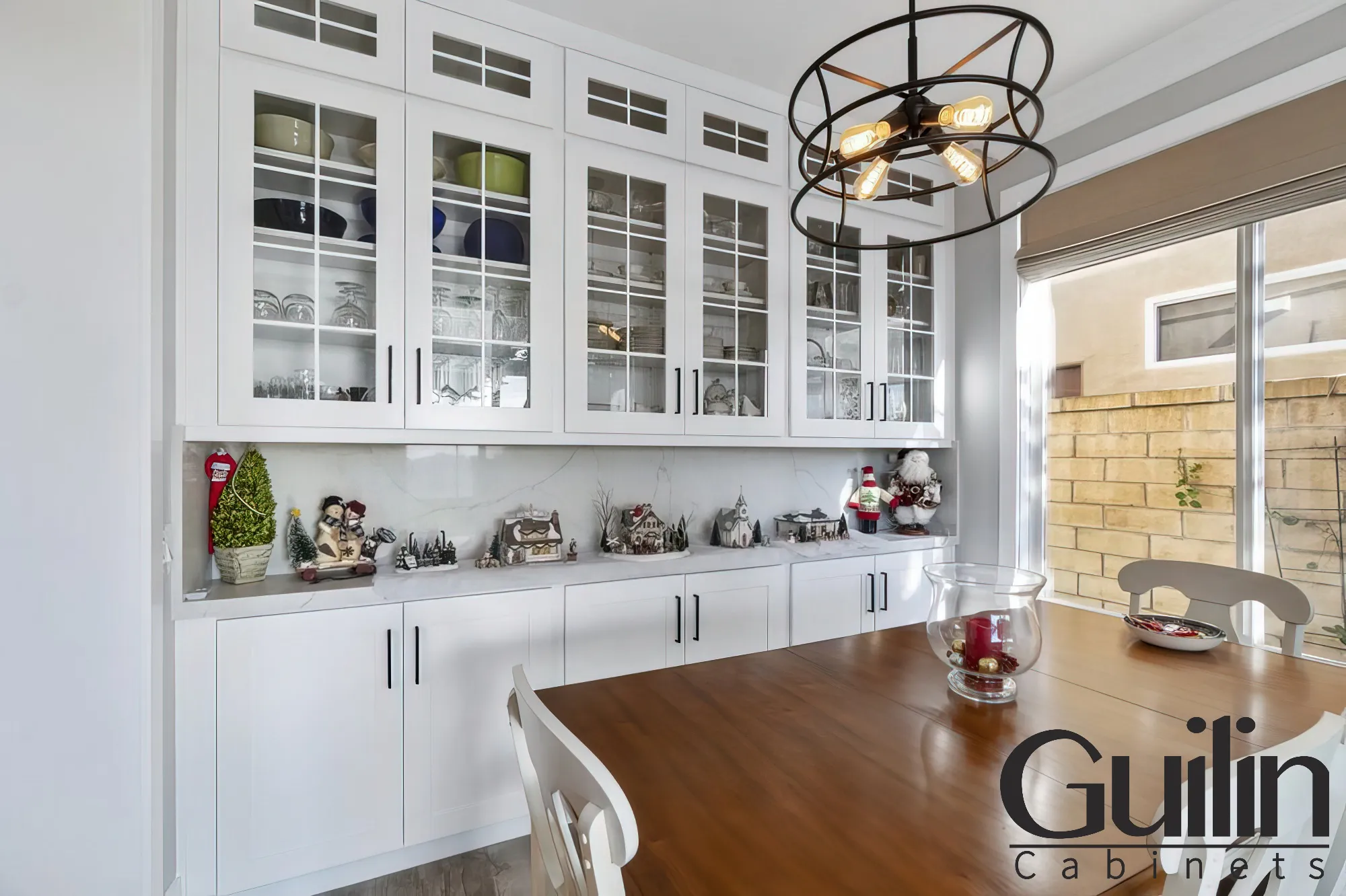
Wide Variety
The possibilities are nearly limitless now when it comes to choosing the ideal wood countertop for your house. Whether you choose more traditional hardwoods like oak and maple or more unusual options like teak and bamboo, you’re sure to find the perfect wood for your project. Also, there are a lot of different stains, finishes, and edge treatments to choose from, so you can make it look exactly how you want it to. For example, a butcher block countertop could be a good choice if you’re going for a more country, farmhouse look. On the other hand, a face grain or end grain design can be quite beneficial to contemporary and sleek environments due to its clear lines.
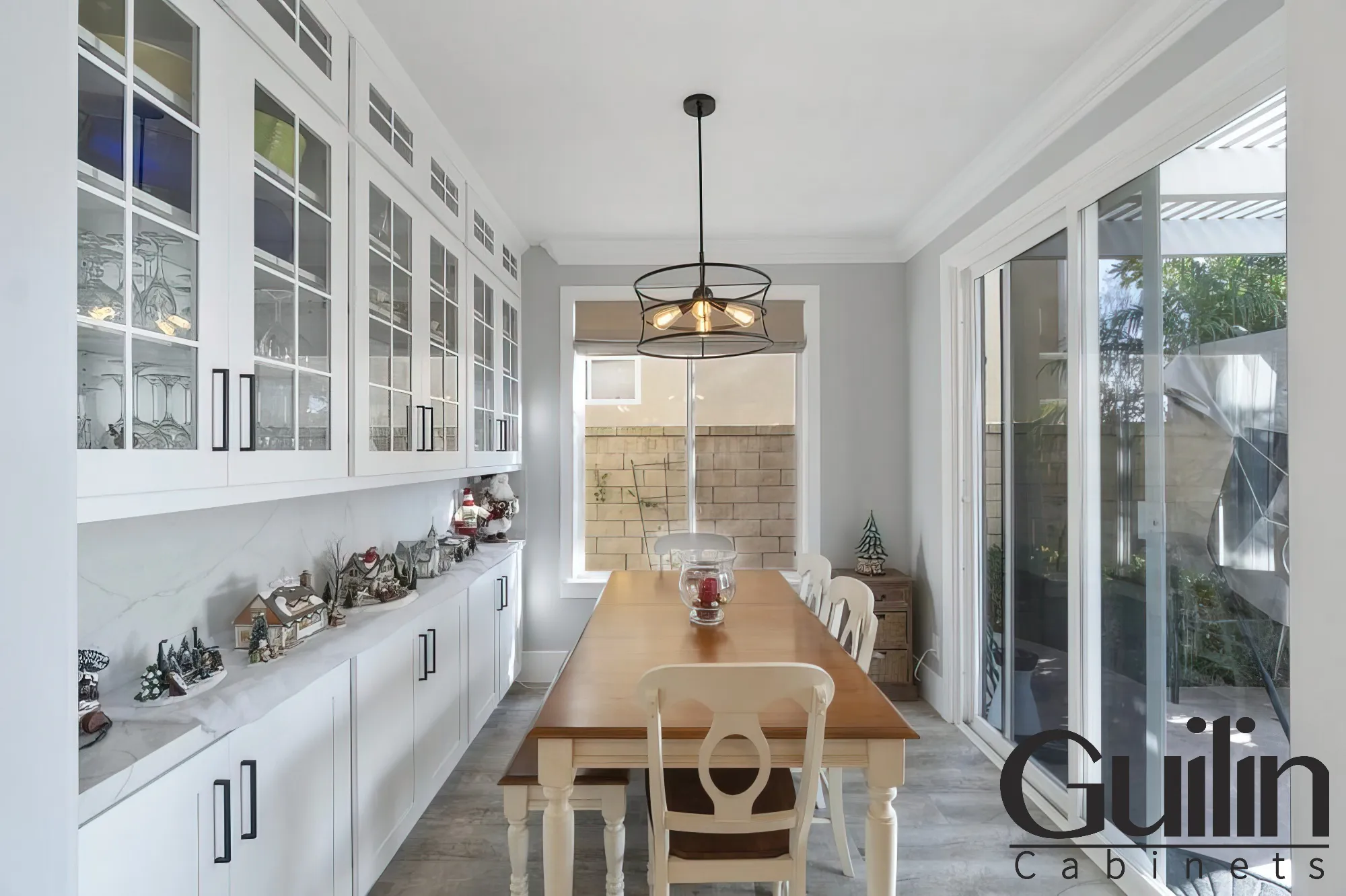
Versatile Design
The beauty of wood countertops lies in their ability to complement any design style seamlessly. Versatile and adaptable, they enhance traditional, contemporary, or eclectic spaces with ease. Whether you’re going for a cozy cottage vibe or a sleek modern aesthetic, wood countertops can tie the room together beautifully.
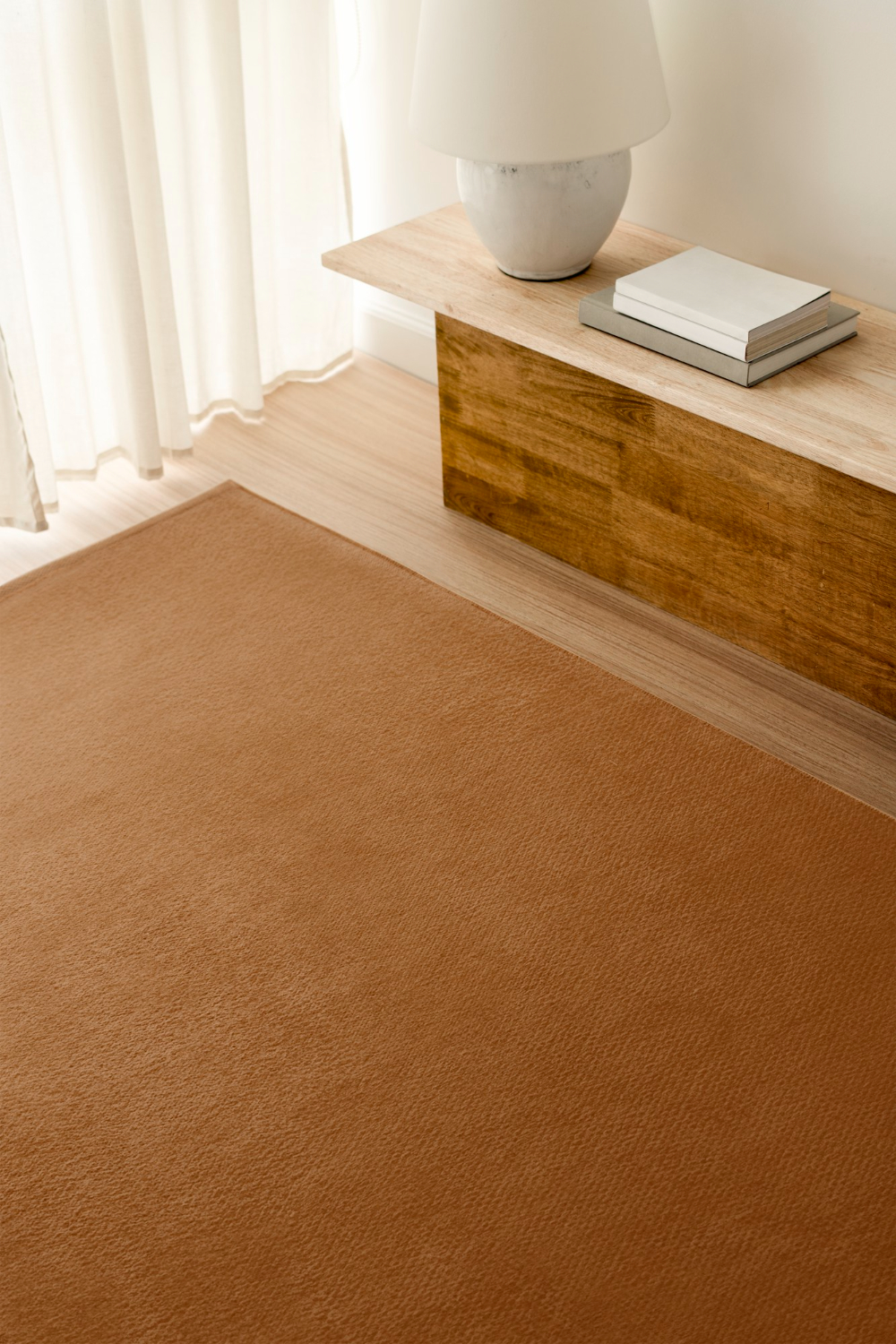
Warm Touch
To add to their charm, wood countertops offer a warmth that extends beyond their appearance. Soft to the touch and warmer than materials like stone or metal, they create a comfortable and inviting atmosphere in your kitchen. This tactile quality adds a unique sensory experience to your cooking space.
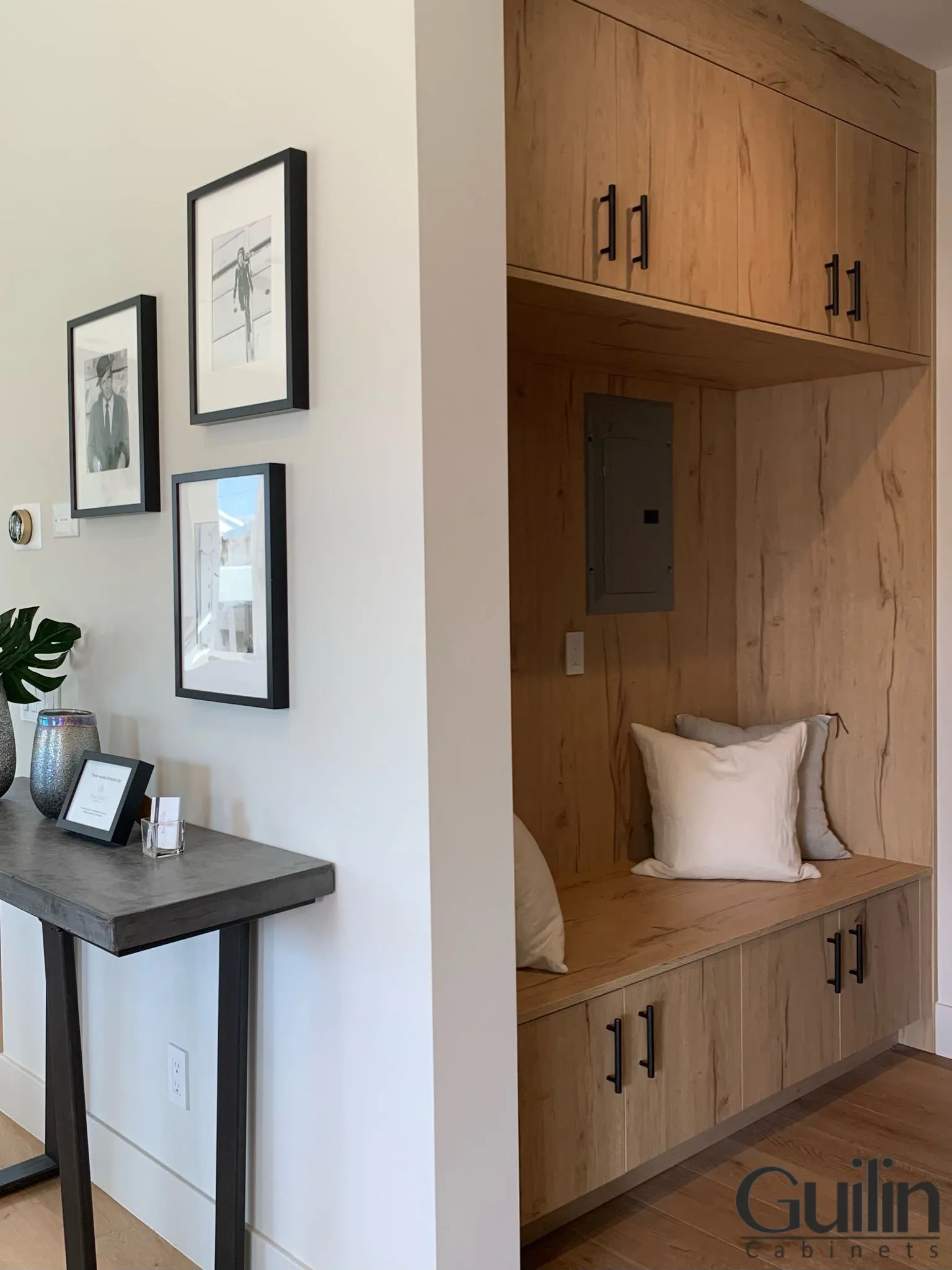
Eco-Friendly
The use of wood countertops also contributes to a more sustainable environment. Wide availability of reclaimed wood options allows for eco-friendly choices in your home decor. Additionally, most wood countertops are recyclable, reducing their environmental impact even further. This eco-conscious approach aligns with the growing trend towards green living, making wood countertops a responsible and stylish choice for your kitchen or bathroom remodel.
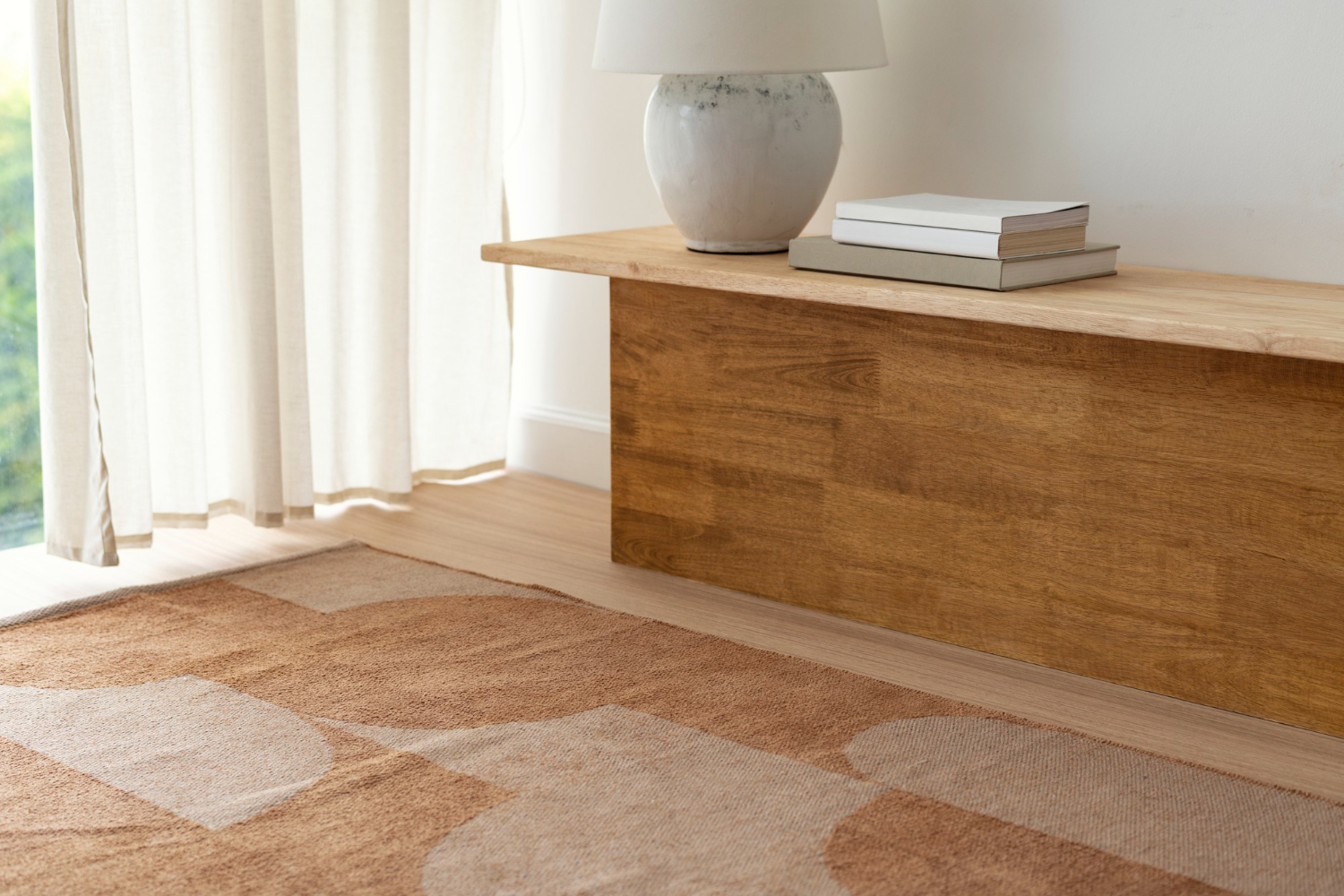
Cons of Wood Countertops
Proper Sealing Needed
These days, you can’t have a wood countertop without sealing it to keep bacteria and germs at bay. The health and cleanliness of your home could be jeopardized if you work on an unsealed wood countertop because of the porous surface it provides. For a clean and safe kitchen, resealing the countertop regularly is essential.
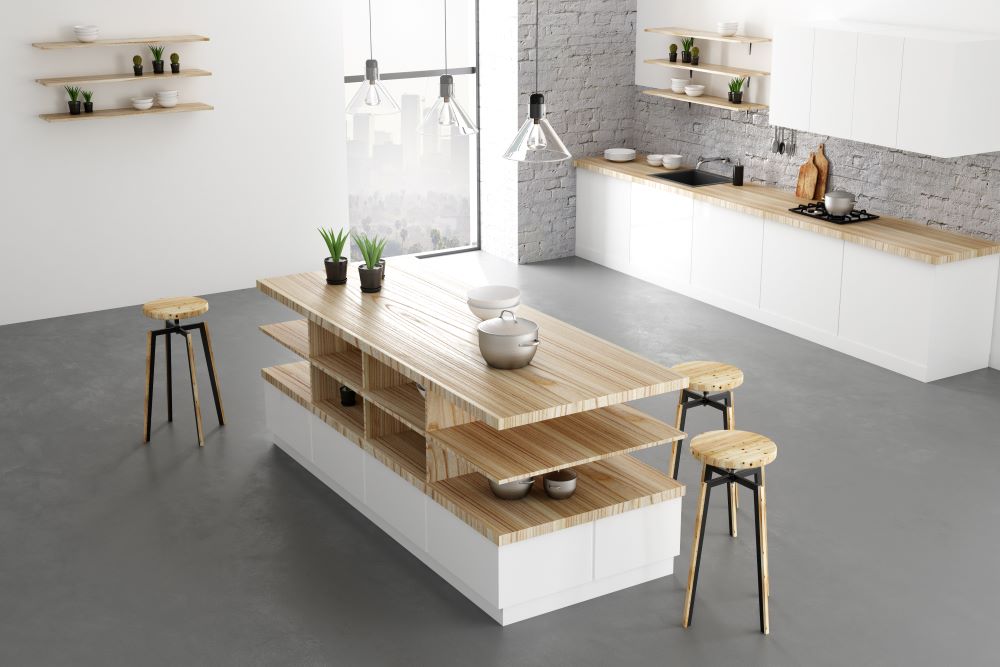
Water Damage Risk
Wood countertop susceptible to water damage. Constant exposure to moisture, whether from spills or stagnant water, can result in warping, staining, and overall deterioration of the wood surface. Proper care must be taken to promptly wipe up any spills and avoid leaving wet items on the countertop for prolonged periods. The risk of water damage can be mitigated by ensuring that the wood is adequately sealed and regularly maintained to preserve its integrity. For instance, using coasters, trivets, and cutting boards can help prevent water-related issues and prolong the lifespan of your wood countertop.
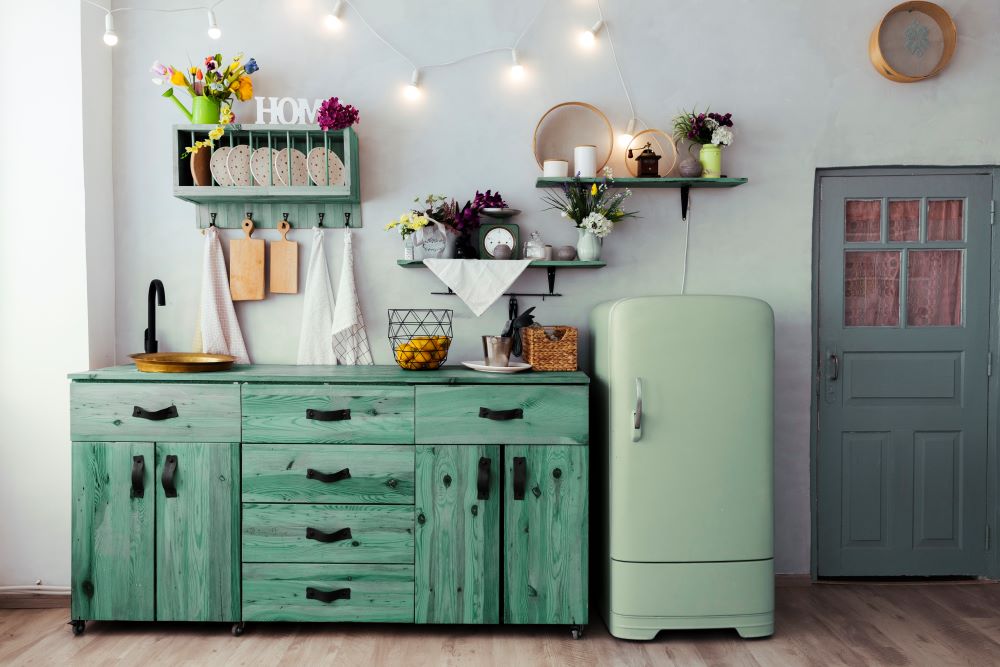
Refinishing May Be Required
A wood countertop, like any other surface, will eventually exhibit signs of wear and tear; in such a case, refinishing will be necessary to bring back the countertop’s former glory and functionality. Over time, the wood’s protective coating may wear off, necessitating a new coat or perhaps a complete sanding and refinishing of the countertop. Preventing additional damage and keeping the wood countertop’s visual appeal requires regular examination and maintenance, which can assist detect when refinishing is needed.
If you follow the right procedures, refinishing can fix scratches, heat marks, and wear and tear, but it won’t last forever and won’t look good. Refinishing your wood countertop on a regular basis is an investment that will pay off in the long run by keeping it looking beautiful.
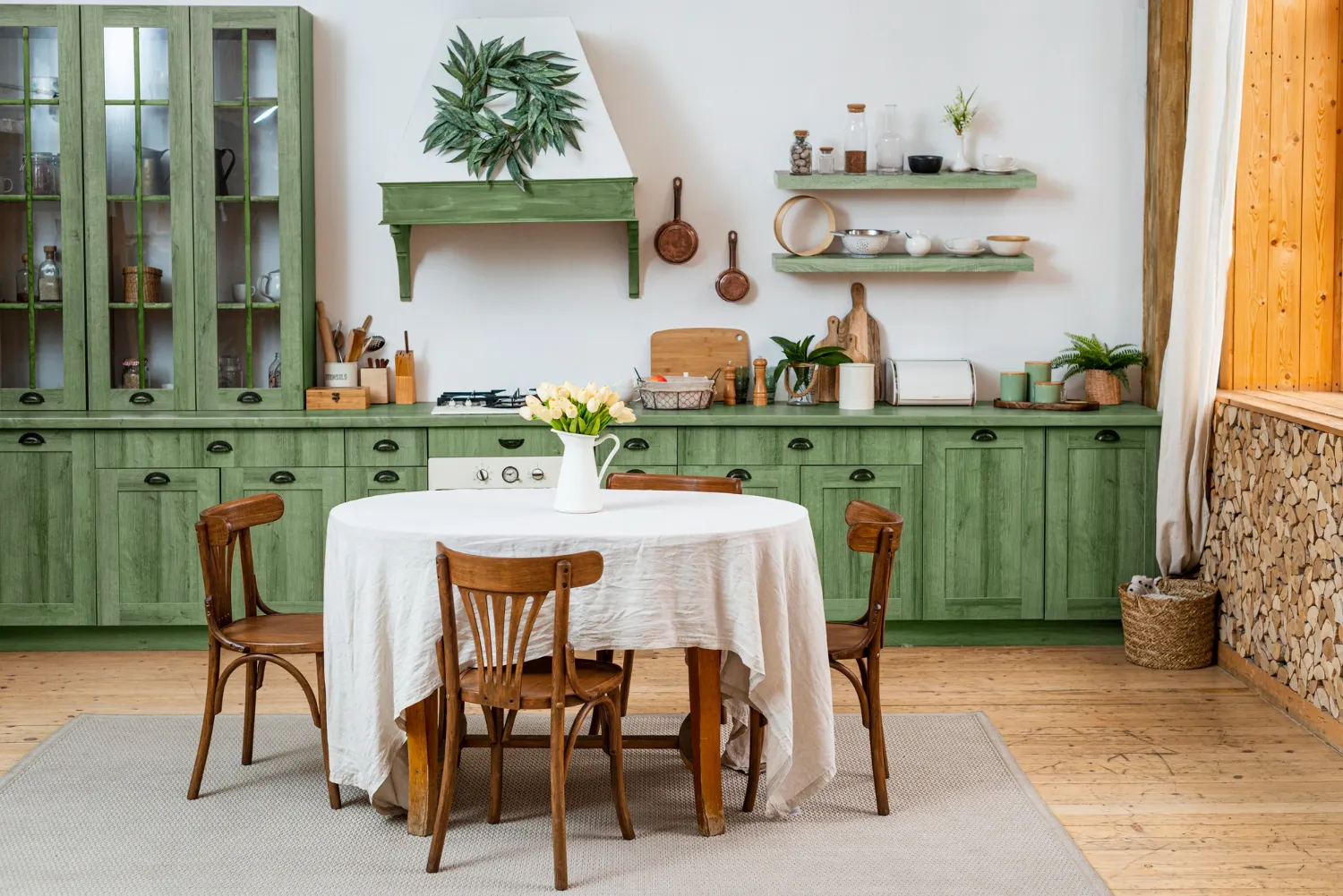
Susceptible to Damage
Countertops made of wood are more easily damaged than those made of stone or metal because of their inherent softness. Wood can easily develop surface imperfections like scratches and dents due to its inherent pliability. Although some homeowners love the unique charm that these countertop defects bring, others might not be a fans.
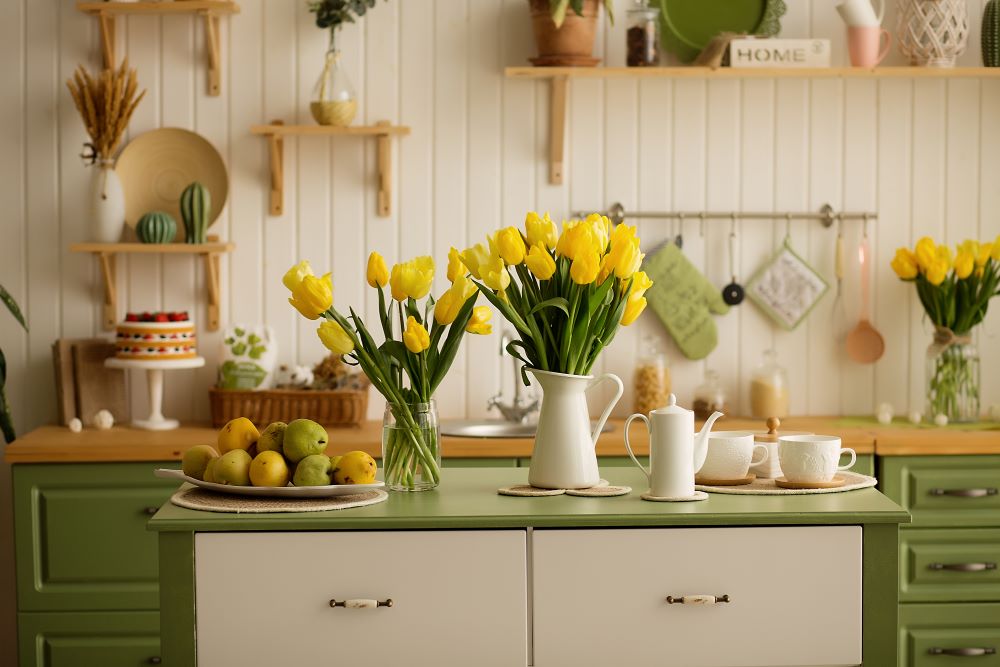
Need Help From Pro-Home Contractor?
In search of the ideal countertop to complete your ideal bathroom or kitchen? You can choose options that suit your style and preferences. Our professionals can assist you in realizing your vision by recommending the perfect stone material, whether it’s granite for its timeless beauty or engineered quartz for its contemporary edge.
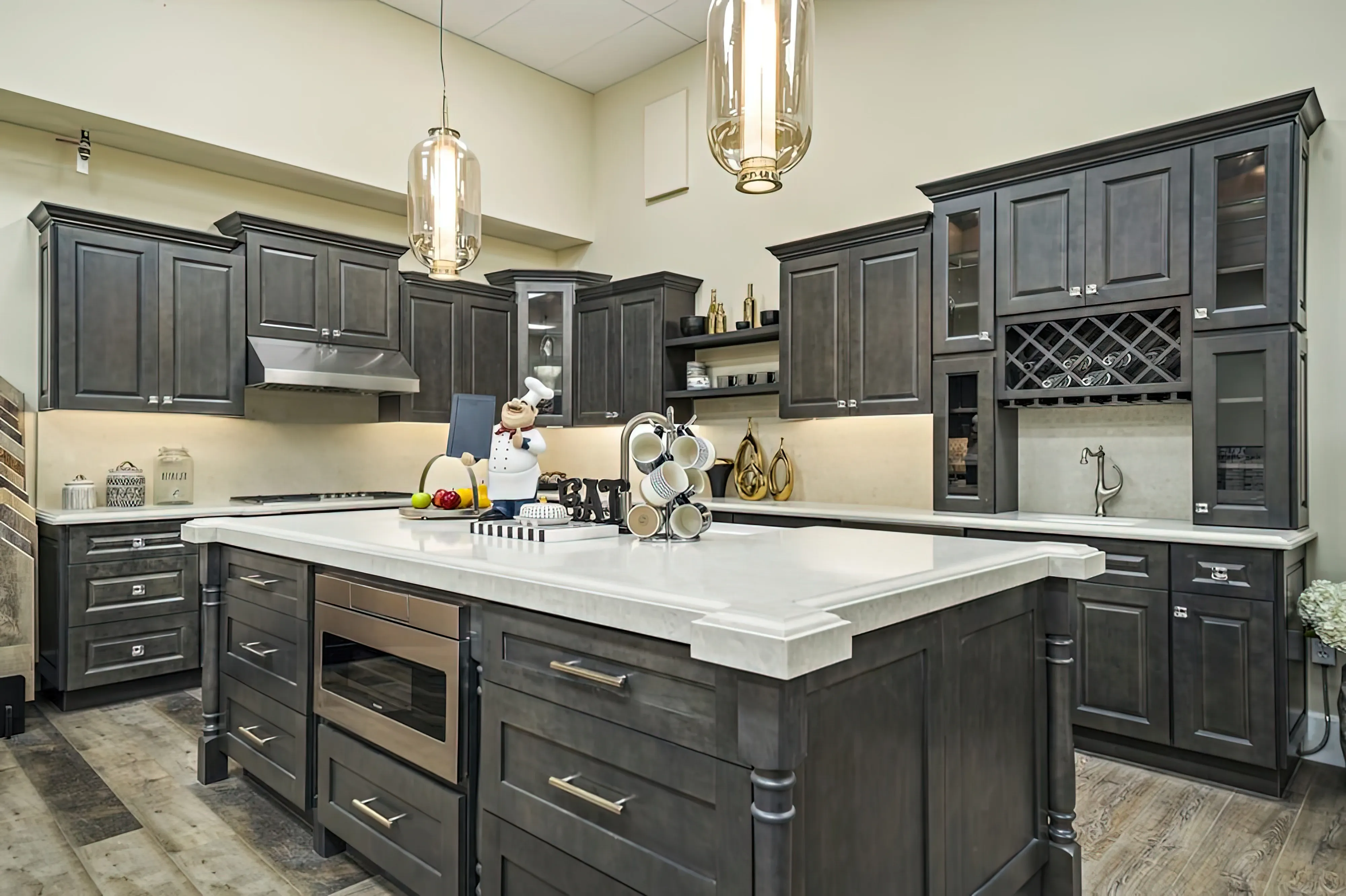
Our in-home design consultation service is completely free of charge. We have huge samples to your house so you can observe how they complement your existing furnishings and lights. Countertop color advice is only one of many things we offer. Among our many services, we can assist you with the installation of backsplash tiles, custom of cabinets, and refacing to kitchen cabinets. Don’t leave yourself wondering; with our help, we can transform any kitchen into a magazine-worthy masterpiece!

Contact Guilin Cabinets Today:
To Wrap Up
To help consumers make an informed decision about this popular material for their kitchen or bathroom countertops, we have compiled a list of the benefits and drawbacks of wood worktops. Wood countertops, on the plus side, are available in a vast array of species, stains, and finishes, adding a touch of rustic charm and beauty to any room. Whether you’re going for a more classic or contemporary look, they’ll complement your decor. Plus, there are a lot of options for eco-friendly wood countertops created from recycled or reused wood, so they’re not bad for the environment. On top of that, they provide a fantastic cutting surface that is easy on the blades.
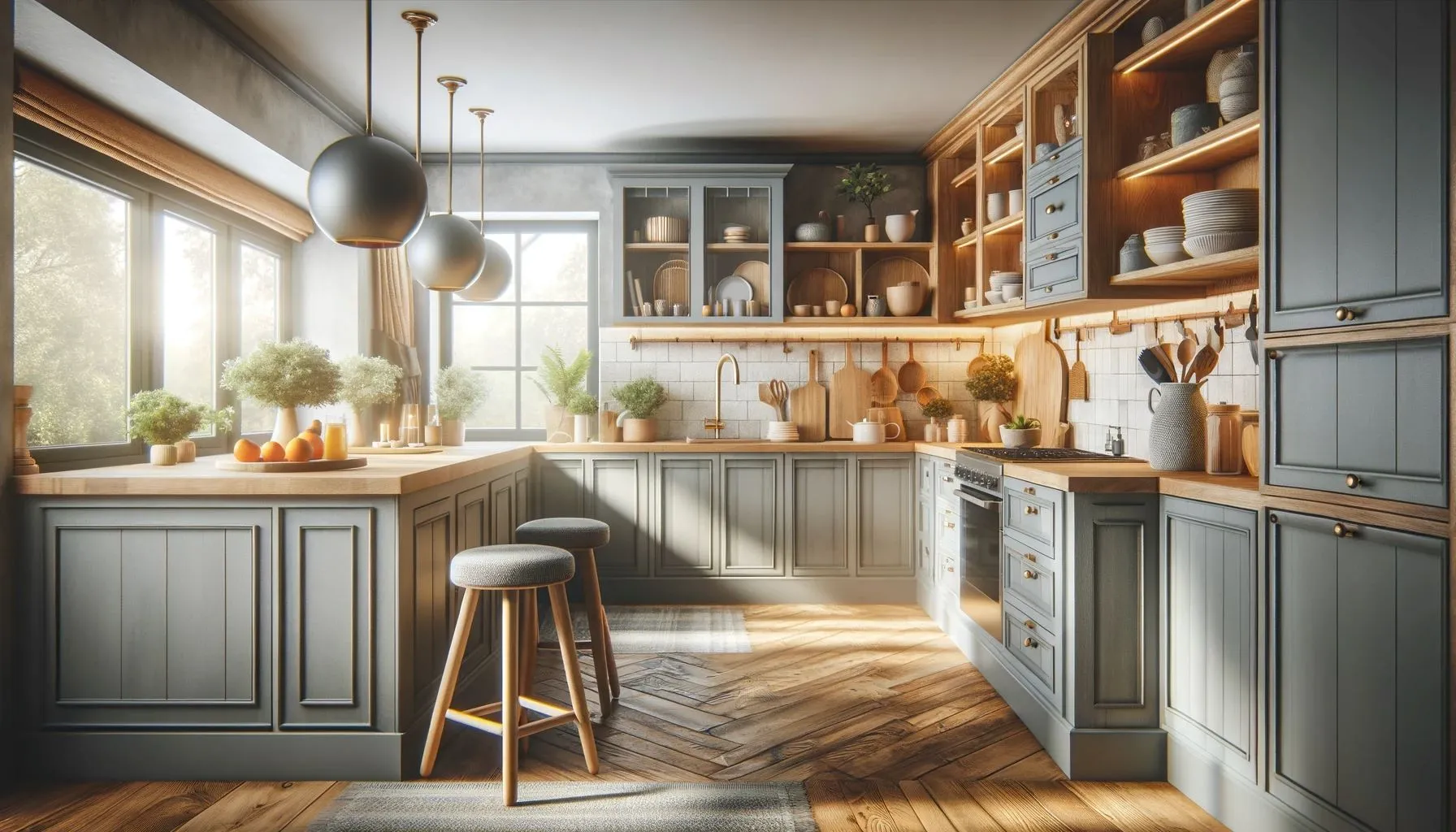
FAQs About
In Short, What are the main reasons people choose wood countertops?

Wood countertops are popular because they add a touch of natural beauty and warmth to any kitchen or bathroom, making the room feel more inviting and comfortable.
What types of wood are commonly used for countertops?

Maple, cherry, oak, birch, teak, and bamboo are among the popular choices for wood countertops, each offering its unique grain patterns and tones that emulate the warmth and charm of natural wood.
Do wood countertops work well with all design styles?
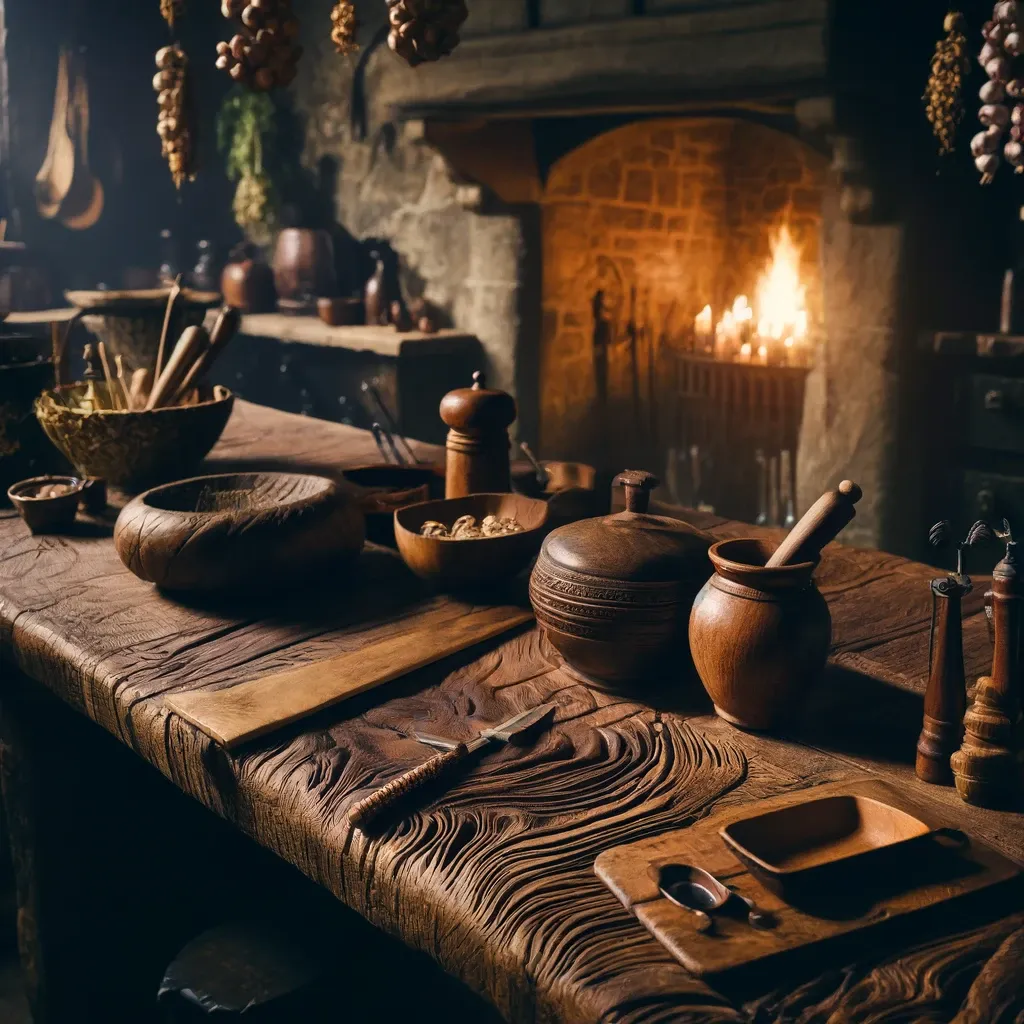
Absolutely! Wood countertops seamlessly complement diverse design styles, ranging from classic and rustic to sleek and contemporary, ensuring versatility and timeless elegance in any setting.
Are wood countertops environmentally friendly?

While many wood countertops may not be crafted from reclaimed materials initially, there’s a notable shift towards sustainability, with a growing trend of salvaging and repurposing wood for eco-conscious countertop solutions. Additionally, most wood countertops are recyclable, further contributing to their environmental friendliness.
How often should wood countertops be refinished?
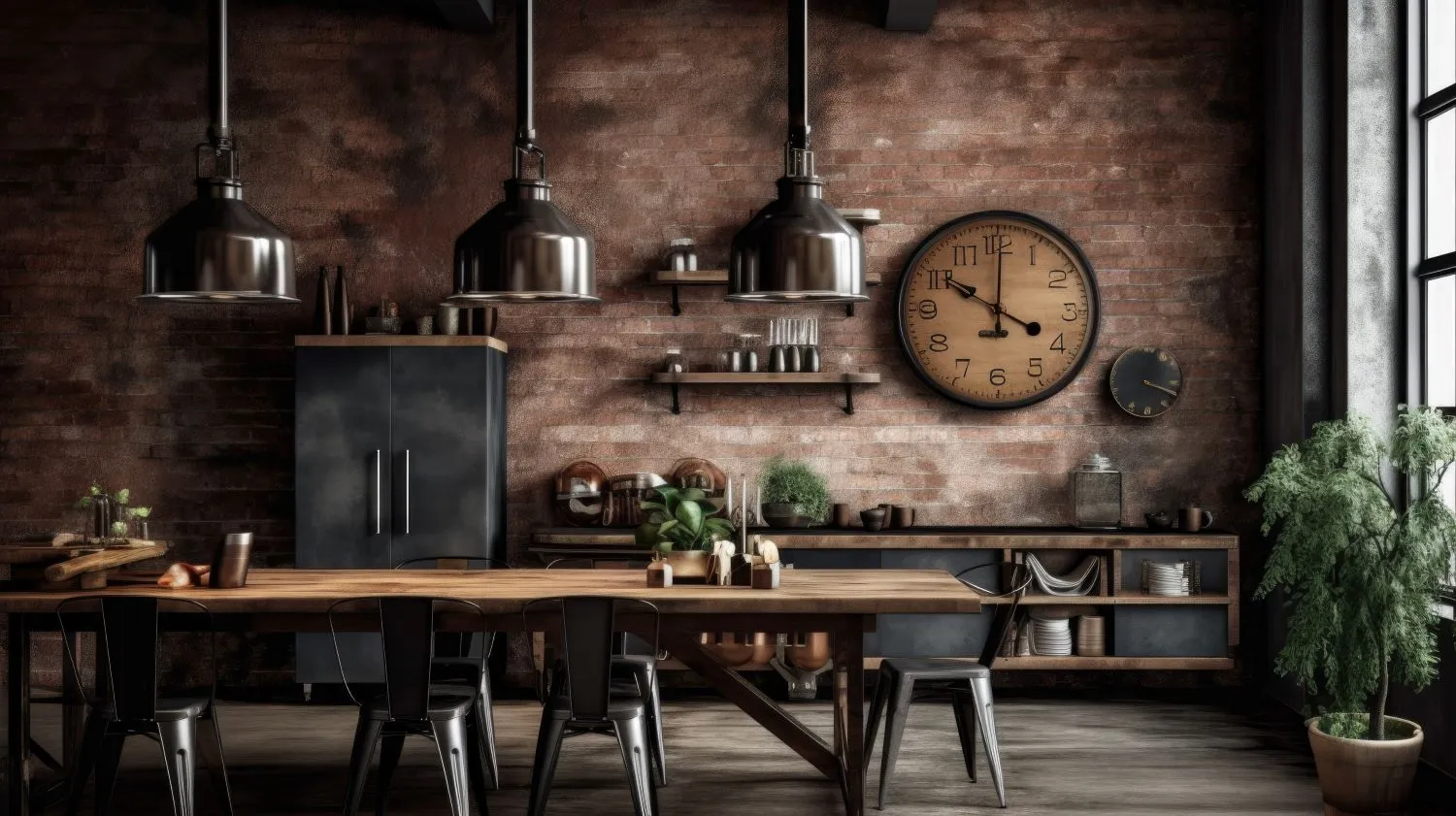
Typically, wood countertops should undergo refinishing every 10 to 20 years, contingent upon their usage and exposure to wear and tear. Refinishing procedures may entail reapplication of protective finishes or comprehensive sanding and refinishing to restore the surface to its former glory.


